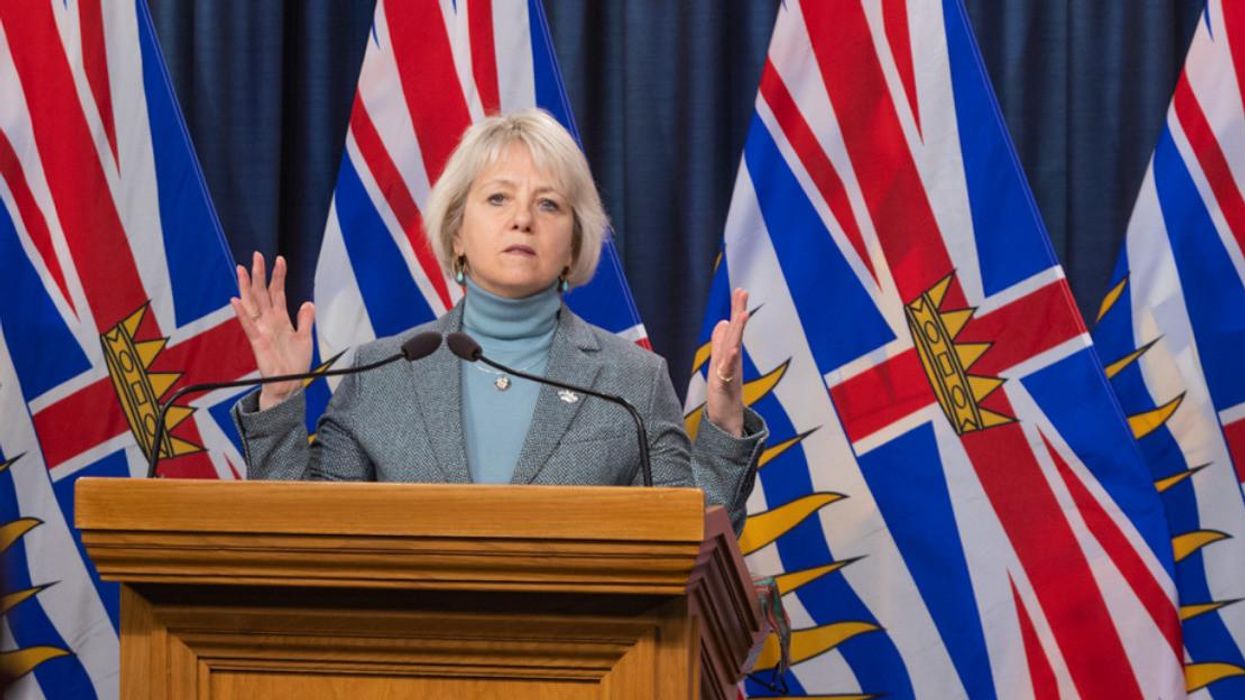BC Is Now Dealing With COVID-19 Like The 'Common Cold' & Here's What Their New Advice Is
"We are all close contacts of somebody with the virus."
The B.C. government said that they are now treating COVID-19 more like the "common cold".
In a press conference on Friday, January 21, Dr. Bonnie Henry addressed how they are dealing with the ongoing pandemic, and surge of Omicron cases.
"The Omicron variant is different, so we have adapted how we have managed the situation," she explained.
She also said that Omicron is highly infectious, has a shorter incubation period, and that "many people will have mild or asymptomatic infections, and not even realize that they are infected."
Because of this, as well as the access to vaccines and treatments that the province has, she said that "COVID-19 is no longer an infection for which contact tracing is an effective intervention."
Instead of contact tracing, Dr. Henry encouraged people to get vaccinated, manage their own symptoms, and get tested if they are eligible for treatment or are at high risk.
She said that these measures are similar to how "we manage other respiratory illnesses, even influenza, or RSV, or enteroviruses that cause the common cold."
Given the level of transmission of Omicron, she added that "we all need to assume that we've been in contact with somebody with the virus."
In addition to following public health guidelines and getting vaccinated, she told people to wash their hands regularly, wear properly fitting masks, and keep their groups small.
Dr. Henry also said that as long as someone is feeling well, "we can and must continue going to work, going to school, and socializing safety in our small groups."
"We are all close contacts of somebody with the virus, so we absolutely need to pay attention to how we are feeling, and making sure that we have a very low threshold for staying away and waiting for another day if we're feeling unwell," she explained.
Because of how fast the variant has spread though, Dr. Henry said that people do not "need to isolate if a friend or family member knows that they have COVID."
If you do feel unwell, she said to stay away from others until you feel better — even if that's the next day.
Those who do have symptoms can use the symptom checker on the BC CDC website, which will tell them if they need to book a test.
If unvaccinated adults test positive, they must isolate for 10 days. If someone who is vaccinated tests positive, they need to isolate for five days.
Health Canada has a robust website with all the latest information on COVID-19 vaccines and can answer any questions you may have.
- Pfizer Or Moderna? A Doctor Says One Has A 'Longer Lasting ... ›
- BC COVID-19 Restrictions Were Just Updated & Here's Everything ... ›
- Omicron Or A Common Cold? A Doctor Explains What To Do If You ... ›
- BC COVID-19 Restrictions Are Eased But You'll Need Your Vaccine Passport Until The Summer - Narcity ›
- An Anti-Vaxxer Dad Lost A Court Battle Over Whether His Daughter Should Be Vaccinated - Narcity ›
- The COVID-19 Anti-Viral Pill Paxlovid Is Now In BC & Here's Who Is Eligible To Receive It - Narcity ›
- A String Quartet Will Play Taylor Swift By Candlelight In Vancouver & Tickets Start At $30 - Narcity ›
- BC Is Updating COVID-19 Restrictions Next Week With 'Science' & 'Data' Leading The Decision - Narcity ›
- BC Could Lift COVID-19 Restrictions This Week With 'Science' & Data Leading The Decision - Narcity ›
- The BC Vaccine Card & 7 More COVID-19 Rules That Remain In Place Until Next Month - Narcity ›
